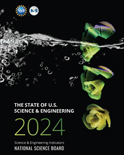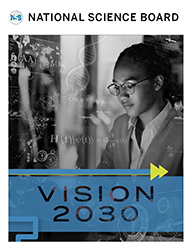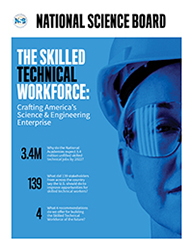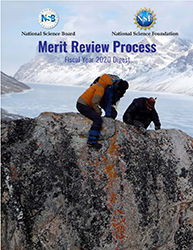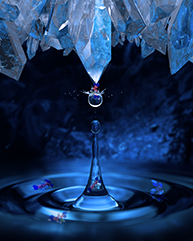News Release 12-119
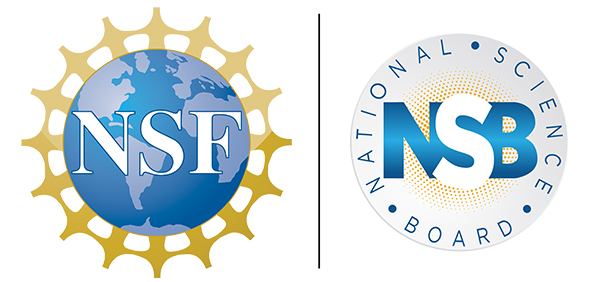
Outstanding Science and Mathematics Teachers Receive Presidential Awards
Awardees meet the Bidens during White House visit
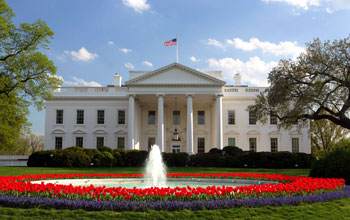
Of the teachers honored from across the country, 51 are science teachers and 46 are math teachers. (Credit and Larger Version)
July 2, 2012
View video interviews with 2011 PAEMST awardees Angela Miller, Judith Martinez, Matthew Montgomery Owens and Robert Samuel Ettinger.
Recipients of the Presidential Awards for Excellence in Mathematics and Science Teaching (PAEMST) came to Washington, D.C., on June 25 for a week of recognition activities and professional development. Highlighting their trip was a visit to the White House, where they met with Vice President Joe Biden and his wife, Jill Biden, a longtime educator. The week's activities also included meetings with Secretary of Education Arne Duncan and National Science Foundation (NSF) Deputy Director Cora B. Marrett. (See the White House blog for additional details and photos.)
On June 28th, the awardees received certificates signed by President Obama at a ceremony at the Ronald Reagan Building and International Trade Center in Washington, D.C.
"America's success in the 21st century depends on our ability to educate our children, give our workers the skills they need and embrace technological change," the President said when announcing the awards last month.
"That starts with the men and women in front of our classrooms. These teachers are the best of the best, and they stand as excellent examples of the kind of leadership we need in order to train the next generation of innovators and help this country get ahead."
PAEMST represents the highest honors bestowed by the U.S. government specifically for K-12 mathematics and science teaching. Awardees serve as models for their colleagues, inspiration to their communities, and leaders in the improvement of mathematics and science education. In addition to the presidential certificate, awardees received a trip for two to Washington, D.C., and a $10,000 award from NSF.
Of the 97 teachers selected for this year's awards (see list below), there are 51 science teachers and 46 mathematics teachers from across the country, including the four U.S. jurisdictions of Washington, D.C., Puerto Rico, Department of Defense Education Activity schools and the U.S. territories as a group. U.S. territories include: American Samoa, Guam, the Commonwealth of the Northern Mariana Islands and the U.S. Virgin Islands.
PAEMST applications are reviewed at the state and national levels by selection committees of outstanding scientists, mathematicians, and educators. Nominees are then sent to the White House Office of Science and Technology Policy (OSTP) and to the President for final selection. Each year the awards alternate between elementary (kindergarten through sixth grade) and secondary (seventh through 12th grade) teachers.
Since the program's inception in 1983, more than 4,200 teachers have received this honor. NSF administers PAEMST on behalf of OSTP. The 2011 Presidential awardees are listed below. For more information, including awardee photos, bios, and quotes, visit the PAEMST website.
| By Discipline (Mathematics) Jaime Abreu Ramos, Puerto Rico Jennifer Baker, Missouri Sarah Bax, District of Columbia Spencer Bean, DoDEA Beatriz Camacho, US Territories Stephanie Cronin, Alaska Suzanne Culbreth, Alabama Peter DeCraene, Illinois Karla Digmann, Iowa Alison Drake, Louisiana Kathleen Erickson, Massachusetts Cathy Estes, Vermont Donna Forbes, Minnesota David Hartman, Nebraska Andrea Higdon, Kentucky Phyllis Hillis, Tennessee Kentaro Iwasaki, California Elisabeth Jaffe, New York Tammy Johnson, Montana Kathleen Jones, Florida Gary Mayers, Nevada John McAllen, III, New Jersey Angela Miller, Kansas Ashley Moody, Oklahoma Carole Morbitzer, Ohio Stephaine Muckelberg, Arkansas Brian Nelson, Rhode Island Matthew Owens, South Carolina Katie Pemberton, Idaho Mary Pinkston, Delaware Neil Reger, West Virginia Kimberly Riddle, Virginia Dixie Ross, Texas Natalie Schneider, Indiana Katherine Schwang, Pennsylvania Vivian Shell, Utah Nathan Shields, Washington Deborah Snook, South Dakota Charles Souza, Jr., Hawaii Michael Tamblyn, Wisconsin Carol Taylor, Georgia Karen Thomas, Connecticut Nancy Trollinger, North Carolina Jennifer Wilson, Mississippi Jayne Wingate, Wyoming Andrea Wiseman, Colorado | By Discipline (Science) Dean Baird, California Katherine Baker, US Territories Robert Becker, Missouri Gina Bergskaug, New Hampshire David Bonner, Illinois Dennis Burkett, Jr., Kansas Joan Christen, Nebraska Anna Cole, Louisiana Jacqueline Curley, Virginia Chanda Davis, Alabama Robert Ettinger, Washington Stephen Fannin, Florida Tami Fitzgerald, Ohio Michael Frank, Arizona Eric Grunden, North Carolina Amy Hanson, Colorado Barry Hopkins, Maryland Tyler Hoxley, Connecticut Joanna Hubbard, Alaska James Jordan, Idaho Michael Kaufmann, Delaware Joy Killough, Texas Mary Koike, Oregon Paul Kuhlman, South Dakota Ila LaChapelle, North Dakota James Larson, Utah Vickie Logan, Arkansas Judith Martínez, Puerto Rico David Mather, Rhode Island Stacy McCormack, Indiana Angela McDaniel, West Virginia Jamin McKenzie, Minnesota Lucy McKone, Mississippi Rebecca McLelland-Crawley, New Jersey Elizabeth Mirra, Vermont Rebecca Morales, Oklahoma Francesco Neal-Noschese, New York Donald Pata, Michigan Kara Pezzi, Wisconsin Carol Pleninger, Montana Richard Schmidt, Pennsylvania Gail Schulte, Tennessee Julia Segawa, Hawaii Chad Sharpe, Wyoming Kelly Stewart, Georgia Jody Stone, Iowa Holly Sullivan, South Carolina Joshua Underwood, Kentucky Kenneth Vencile, Maine Naomi Volain, Massachusetts William Wallace, District of Columbia |
-NSF-
Useful NSB Web Sites:
Home Page: http://www.nsf.gov/nsb
Media Contact: http://www.nsf.gov/staff/staff_bio.jsp?lan=nlymn&org=NSF
News: http://www.nsf.gov/nsb/news
Meetings: http://www.nsf.gov/nsb/meetings
Publications: http://www.nsf.gov/nsb/publications
Facebook: https://www.facebook.com/NationalScienceBoard
Twitter: Twitter: https://twitter.com/intent/user?screen_name=NSF_NSB
YouTube: https://www.youtube.com/channel/UCkrHRzuGSrPp2haQs0T_Pww
To view PDF documents, please download Adobe Acrobat Reader.
